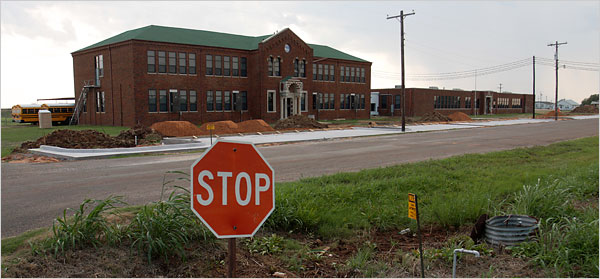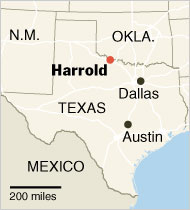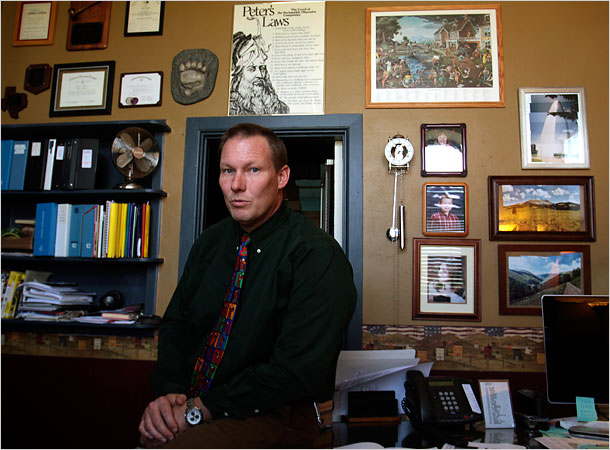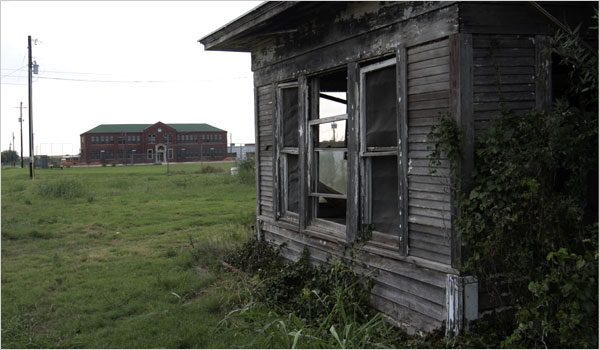| Want to send this page or a link to a friend? Click on mail at the top of this window. |
More Special Reports |
| Posted August 29, 2008 |
| National |
| In Texas, Teachers Carry Books and Guns |
 |
| REX CURRY FOR THE NEW YORK TIMES |
| Barely 100 students attend classes at Harrold, a tiny town in north-central Texas. But the school board's decision to allow teachers to carry weapons has drawn national attention. |
| By JAMES C. McKINLEY JR. |
|
|
|
 |
|
|
|
|
|
|
 |
|
| REX CURRY FOR THE NEW YORK TIMES | |
| Harrold School Superintendent David Tweatt pushed for the policy to arm teachers with concealed guns. "County people are take-care-of-yourself people." |
|
|
|
 |
|
| REX CURRY FOR THE NEW YORK TIMES | |
| The police recently shut down a drug-producing laboratory with conceald guns. |
| Wehaitians.com, the scholarly journal of democracy and human rights |
| More from wehaitians.com |